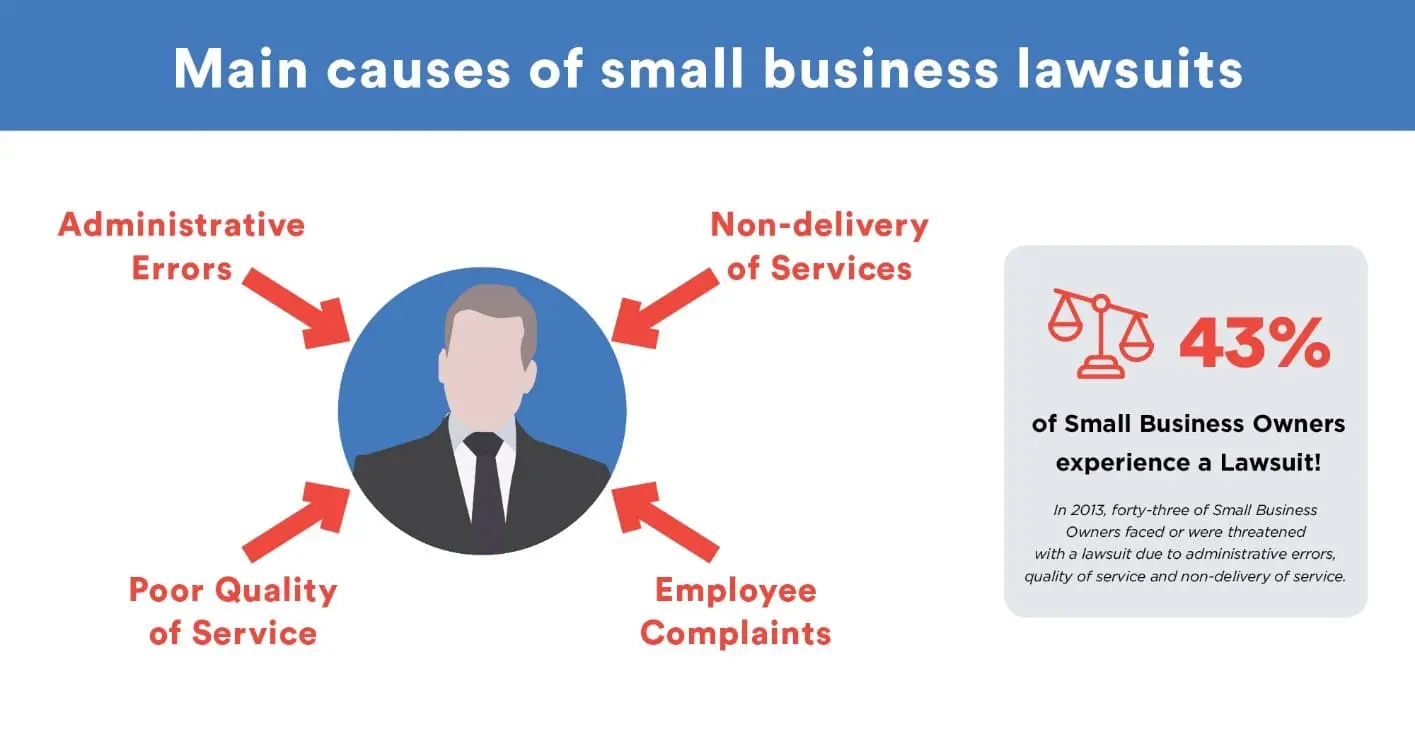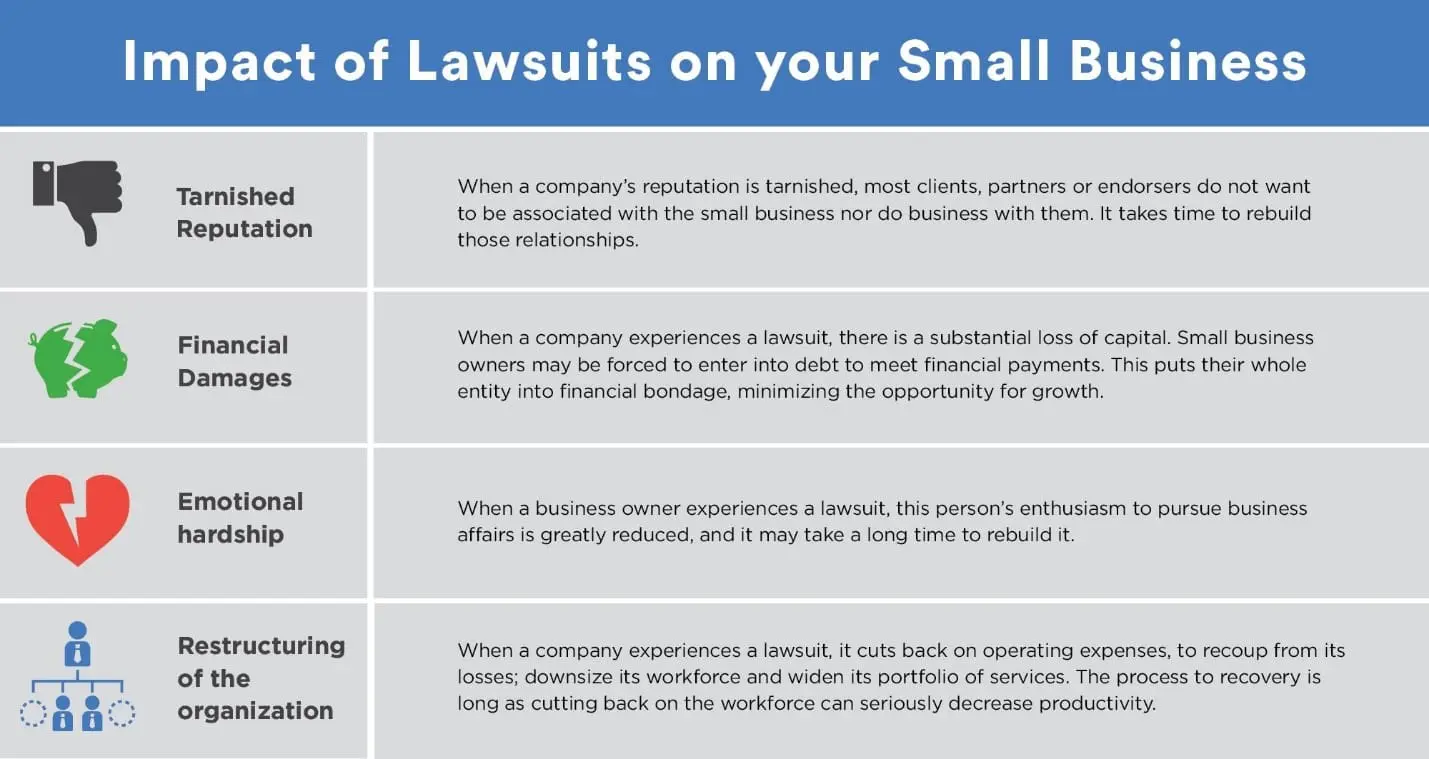How Employment Lawsuits Can Destroy Your Firm
Small firms are the most vulnerable to crises, disasters, and lawsuits.
Text
Small firms are the most vulnerable to crises, disasters, and lawsuits. In fact, according to the US Chamber Institute for Legal Reform more than 40% of small firms were either involved in or threatened with a lawsuit due to A) administrative oversights or errors, B) undelivered services or C) poor quality of service, much lower than industry standard.
Since 2006, the number of lawsuits claiming workplace harassment, related to gender, disability and age, has grown by 25 percent, according to statistics released by Bolt Insurance Agency. This evidence shows that small businesses need to be effectively prepared for any crises that may hit or they may not easily recover from them.

Impact of lawsuits on your firm
Improper management of employee complaints or negligent administration of an investigation for sexual discrimination can lead to expensive employment lawsuits taxing small business owners with fines from $3,000 to $170,000, substantial emotional hardships, ruined reputation, and long-term impact on company operations.

How you can to prevent lawsuits
Proper HR solutions cushion your business by identifying areas that do not comply with the law. When you know what the problem is, you can fix it. This is an area where it’s best to be proactive—discussing employment issues with an attorney and/or a HR Consultant prior to implementation can help ensure they never come back to be a problem. PEOs or Professional Employer Organizations also know as HR outsourcing, may be able to help your firm.
Furthermore, if your architecture firm has been in business for a while but you have not had a chance to review your current HR policies or procedures to make sure they are compliant to standard rules and regulations, then it’s time to complete an HR audit.
Quick Tips to Prevent Lawsuits
- Consult your attorney or business consultant regularly
- Complete an HR audit annually
- Invest in resources to update your policies
- Review contracts with all stakeholders to make sure you are protected
- Invest in adequate insurance
- Keep your employees happy by soliciting their feedback for improvement
Want to know more?
Since 1984, the National Association of Professional Employer Organizations (NAPEO) represents the PEO industry with 300 PEO members, promoting a Code of Ethics and best practices to its member companies that provide payroll, benefits, regulatory compliance assistance, and other HR services to small and mid-sized companies.
To find a PEO doing business where you are, search NAPEO for PEO companies by state, then review the listings andrequest proposals from PEO companies that fit your needs.
More on Firm Management

Navigating the Job Offer
Firm Management ▪ Professional Practice ▪ Webinar
Quality Control/Quality Assurance for Architects
News ▪ October 2025
The Hidden Risk to Your Firm’s Future: Why Continuity Planning Isn’t Optional
Firm Management ▪ Life & Health ▪ Risk ▪ Small Firms ▪ Trust Week ▪ Webinar